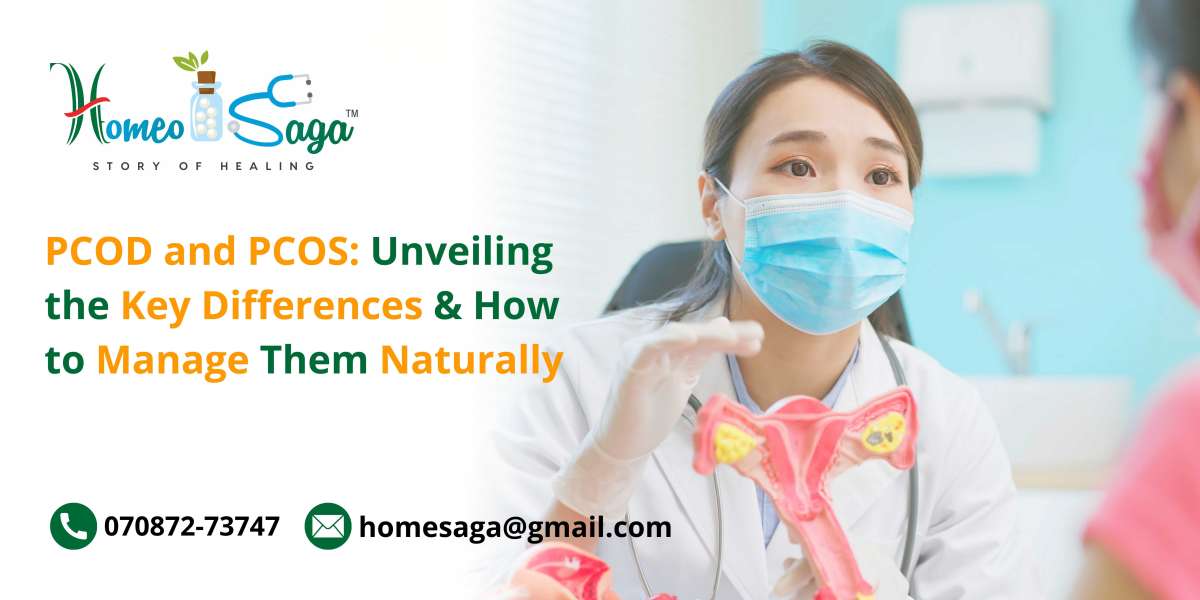Polycystic Ovarian Disease (PCOD) and Polycystic Ovary Syndrome (PCOS) are often misunderstood and used interchangeably, but they represent distinct health issues that affect many women. Understanding the differences between PCOD and PCOS is crucial for effective management and treatment. In this article, we will explore these differences and offer natural strategies for managing symptoms.
What is PCOD?
Polycystic Ovarian Disease (PCOD) refers to a condition where the ovaries develop multiple small cysts. This condition can lead to hormonal imbalances, which often result in irregular menstrual cycles, weight gain, and other symptoms. While PCOD can impact a woman's health, it is generally considered less severe than PCOS.
What is PCOS?
Polycystic Ovary Syndrome (PCOS) is a more complex and serious hormonal disorder. Women with PCOS often face a broader array of symptoms, including irregular periods, excessive hair growth (hirsutism), acne, and difficulties with fertility. Importantly, PCOS is often linked to insulin resistance, increasing the risk of conditions like type 2 diabetes and heart disease.
Differences Between PCOD and PCOS
Hormonal Disruption: While both conditions involve hormonal changes, PCOS is characterized by more severe imbalances, which can lead to greater health complications.
Cyst Presence: Both PCOD and PCOS involve cysts in the ovaries, but the cysts associated with PCOS are usually more numerous and can cause more significant reproductive issues.
Metabolic Impact: Women with PCOS are at a higher risk for metabolic syndrome and insulin resistance. This is less common in women with PCOD.
Severity of Symptoms: Symptoms tend to be more severe in PCOS, with issues like severe acne and excessive hair growth being more prominent than in PCOD.
Natural Strategies for Managing PCOD and PCOS
Managing PCOD and PCOS naturally involves lifestyle modifications that can significantly improve symptoms.
1. Nutritious Diet
A balanced diet is foundational for managing both conditions. Here are some dietary tips:
- Prioritize Whole Foods: Focus on whole grains, fruits, vegetables, and lean proteins to promote overall health.
- Healthy Fats: Incorporate sources of omega-3 fatty acids, such as fish, nuts, and olive oil.
- Low Glycemic Index Foods: Eating low GI foods can help regulate blood sugar levels, which is particularly important for women with insulin resistance.
2. Regular Physical Activity
Exercise is crucial for managing symptoms associated with both PCOD and PCOS. Aim for a combination of aerobic exercises (like brisk walking or cycling) and strength training. Activities such as yoga can also aid in reducing stress and improving overall well-being.
3. Stress Reduction
Stress can exacerbate symptoms of both PCOD and PCOS. Implementing stress-relief techniques such as mindfulness meditation, deep breathing exercises, or even engaging in hobbies can significantly benefit mental health.
4. Herbal Remedies
Some herbal supplements may provide relief for specific symptoms. For instance, spearmint tea is known to help reduce hirsutism, while cinnamon may improve insulin sensitivity. However, it’s important to consult a healthcare professional before trying any new herbal treatments.
5. Regular Health Check-ups
Maintaining a good relationship with your healthcare provider is vital for managing both conditions. Regular check-ups can help monitor hormone levels and adjust treatment plans as necessary. Blood tests can provide valuable insights into insulin sensitivity and other health markers.
Conclusion
Understanding the distinctions between PCOD and PCOS is essential for effective management. Although both conditions share some similarities, they require different approaches to treatment. By adopting a holistic lifestyle that includes a balanced diet, regular exercise, stress management, and ongoing healthcare monitoring, women can successfully manage the symptoms of PCOD and PCOS. Always consult with a healthcare provider to tailor a management plan that fits your individual needs, as proactive steps can lead to improved health and quality of life.








